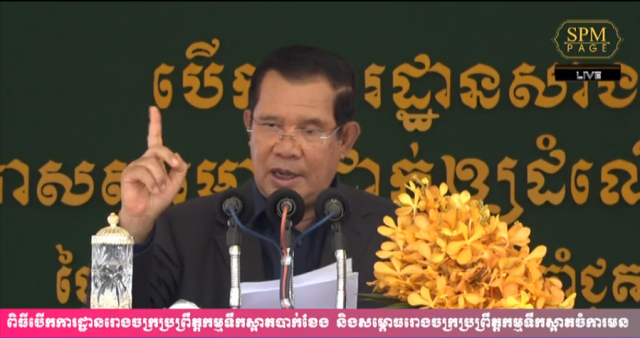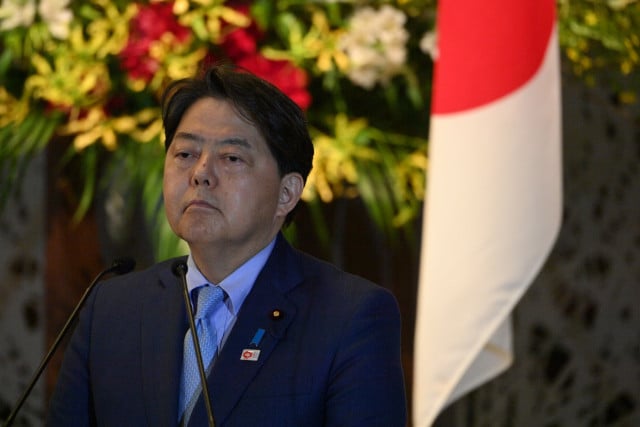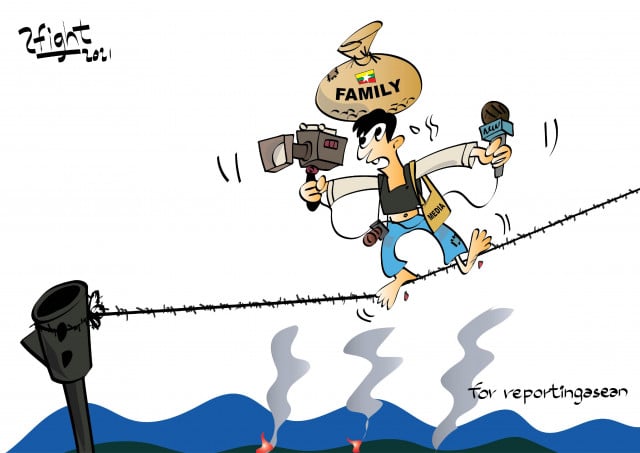Hun Sen: Oil Revenues Won’t Bring About Economic Recovery

- Phoung Vantha
- February 1, 2021 12:23 PM
While Cambodia extracted its first drop of oil in December 2020 to much fanfare, the economic benefits of this nascent industry will do little to stimulate economic growth, Hun Sen warned.
PHNOM PENH--Prime Minister Hun Sen said that crude oil production will not foster broad-based economic growth for Cambodia, largely due to the small volume of production that will be possible.
Speaking at the groundbreaking ceremony for the Bak Kheng Water Treatment Plant in Phnom Penh, he said that Cambodia’s first oil well can produce 1,236 barrels per day and that the second well has only just started extraction on Jan. 30, 2021.
“So far we have only 41,056 barrels of oil,” he said. “For the third, fourth and fifth wells, construction will continue in 2021, but as an estimation, we will produce about 7,000 to 7,500 barrels per day which is still a small amount which cannot support larger economic growth yet.”
He said that Cambodia's oil revenue is less than $30 million, with each barrel selling for $55, so this won’t match the revenues lost in the tourism and garment sectors, both of which have been severely impacted by the ongoing COVID-19 pandemic.
Vongsey Visoth, a secretary of state at the Ministry of Economy and Finance recently said oil revenues were expected to reach just $27 million in 2021, but stressed the need for stronger revenue collection within the government, which totaled $5.7 billion for 2020.
On Jan. 11, the General Department of Taxation's report showed that in 2020, the government collected $2.8 billion—a 4 percent increase from 2019, despite the economic pressures of the pandemic.
Minister of Economy and Finance Aun Porn Moniroth called for an expansion of Cambodia’s taxation system, with oil, mineral resources and e-commerce all eyed as possible sources of state revenue generation.
However, the fanfare to which Cambodia extracted its first drop of oil has been met with caution, with many analysts pointing to the relatively small profits the highly-destructive industry will bring to the country.
Ky Sereyvath, an economist and director of the Royal Academy of Cambodia’s China Study Centre said that oil tax revenue will be small, but certain.
“It's the first stage, oil revenue is still low, but for the next step it will help Cambodia's economic growth in accordance with the expansion of the oil sector and oil refining in Cambodia,” Sereyvath said, adding that other areas need to be explored to make it more profitable.
Despite the relatively small revenues oil is set to generate, many Cambodians already have strong thoughts about how this money should be spent and have raised questions about the transparency of the government’s spending.
Political analyst Lao Mong Hay urged the government to use oil revenues to develop wealth creation, arguing that the money should be used to bolster human resources in science, technology, engineering and mathematics.
Hun Sen said that he plans to find more investors to further develop Cambodia’s oil and gas industries and pledged to use revenues generated by oil to develop the education and healthcare sectors, but made no mention of the environmental issues associated with such industries.
In addition to Block A, there are five oil blocks left in Cambodian waters, while on land there are 19 blocks, according to Cheap Sour, the director-general of the General Department of Petroleum at the Ministry of Mines and Energy,
On Dec. 29, 2020, Cambodia started extracting its first crude oil from fields in the Gulf of Thailand, in a venture between Singapore's KrisEnergy and the government.















